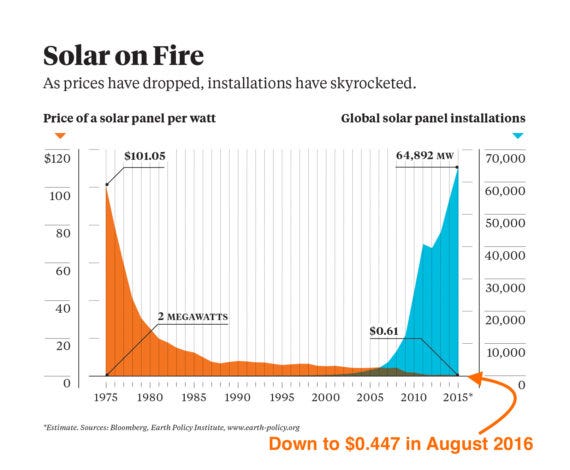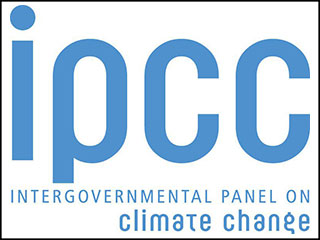Ken Fabian
Registered Senior Member
You might say the denialists are simply melting away.
I will add my 2c worth.
They haven't gone away they are just less focused on claiming global warming is false (although they continue downplaying it's severity and seek to make anything any scientist gets wrong - or any cold snap - justification for rejecting everything scientists are getting right). There is renewed focus on one of the most successful memes, the raising of alarmist (as in false) economic fears - of energy deprivation and economic disaster from "excessive" reliance on renewable energy, which happens to be the one area where we keep exceeding all expectations and presents a real threat - the only real threat - to fossil fuel dependency. The world installed more than 400 GW of solar alone last year - in GWh terms (20% capacity factor terms) that is 80 or more 1 GW nuclear plants worth, with year on year growth of more than 50%. That much, that quickly. Much of it in China, where it should reduce energy poverty and put in place the groundwork for declining reliance on fossil fuels in the highest emitting nation.
It isn't the underwhelming power of climate activism that is doing that, it is science, engineering and capitalist entrepreneurship and ultimately the overwhelming power of market forces, because renewable energy works very well indeed.
When mainstream politics handed the climate issue off to known anti-nuclear environmentalism in you care so much, you fix it style support for renewable energy was political empty gesture at best and give em enough rope at worst and both ways with the certainty their alternative energy options would never work and the fossil fuel status quo would be unaffected. My view is that was both a profound betrayal of public trust by people holding the highest Offices with the overarching duty of care to take the top level expert advice seriously... and the best mistake they have made so far.
Within just one decade of solar crossing into cost competitiveness in most regions of the world it has became the most built kind of new electricity by a large margin (followed by wind). That quickly. We can look at data from before then to show how poorly renewables have been doing historically but look at data since then and we can see how extraordinary their growth is. The IEA - not exactly known for overhyping renewables - expect solar cell production to exceed 1TW per year by 2025, ie within 2 years. The very large stocks of fossil fuels and economic momentum can disguise how significant that shift is but nothing will be the same because of renewable energy.
Batteries halved in costs 3 times over in the 2010's and are on their way further downwards; Australia got it's first grid connected battery farm only 7 years ago, now has 13 mostly much larger ones and whole mega battery factories have come into production within that time. That much, that quickly.
Renewable energy is the one serious cause for optimism in the gloom. It is not the same as problem solved but we are better placed than ever before to commit to zero emissions and make it work.












